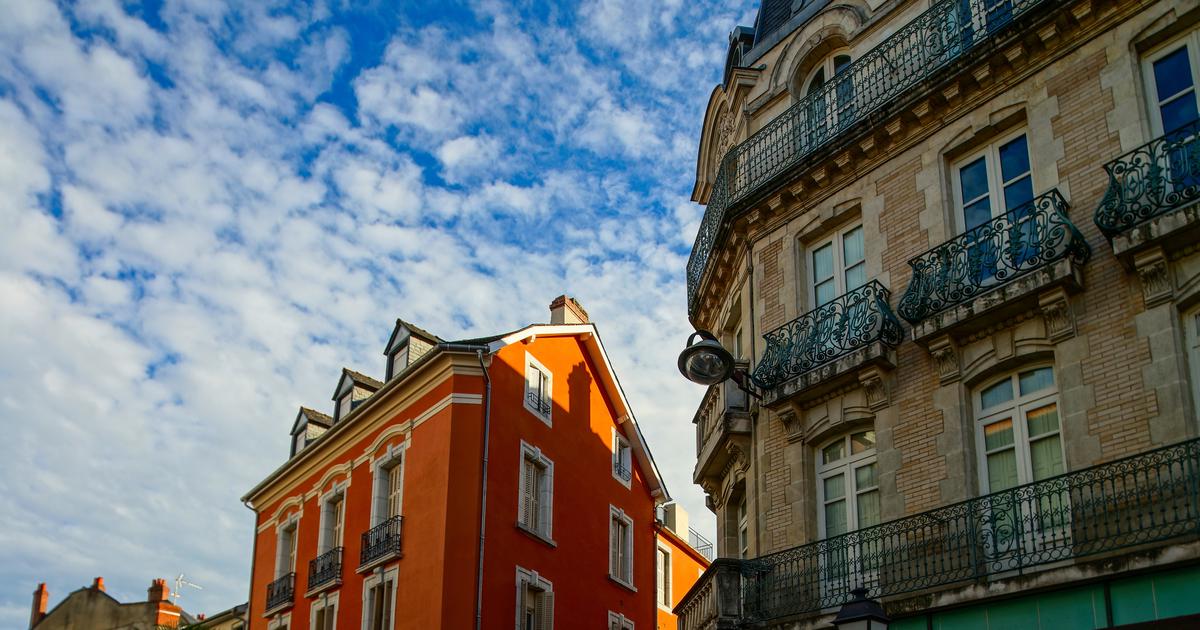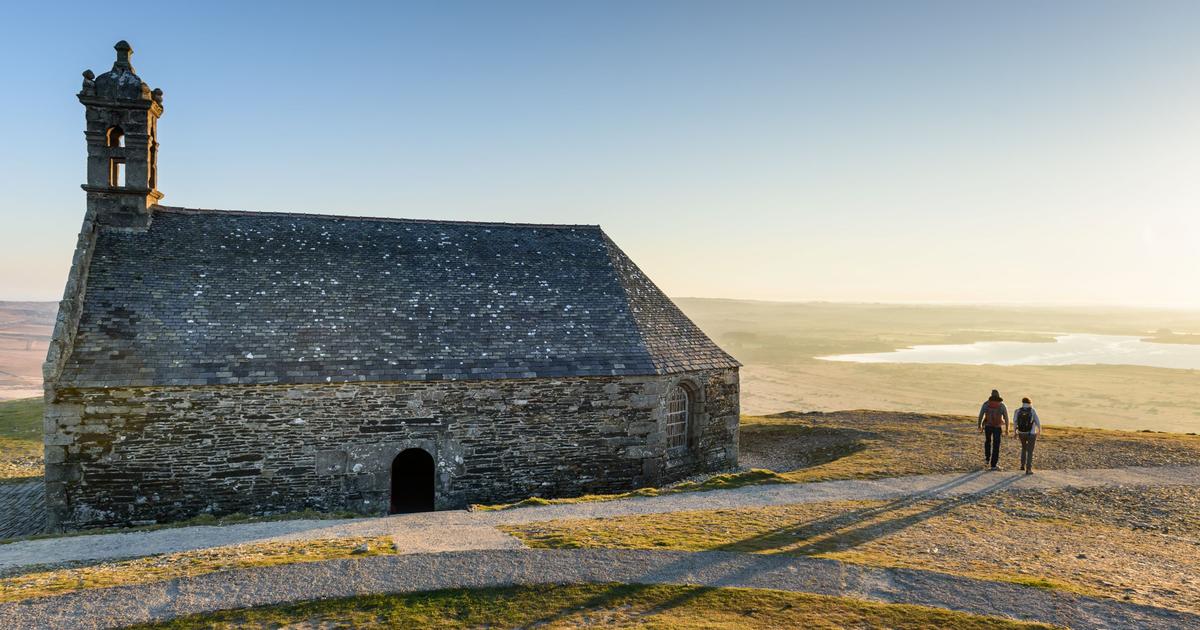If you are homesick, a look at the Lac de Neuchâtel will help
Created: 12/31/2022, 6:00 p.m
Yvette Sauer with a Swiss passport in front of her favorite picture of Lac de Neuchâtel.
© Sabine Hermsdorf-Hiss
Yvette Sauer comes from the French-speaking canton of Neuchâtel.
In 1966, the Swiss emigrated to Germany - because of love.
Geretsried – Switzerland is a blessed country – in many ways.
The patch of earth between Germany, Austria, Italy, France and Liechtenstein is spoiled by nature with glaciers and lakes.
The small cities of Zurich and Geneva enjoy an international reputation.
People generally associate Switzerland with wealth.
The state had the highest prosperity index in the world in 2021.
Geretsried: Yvette Sauer from Switzerland introduces her home country
Thanks to their neutrality, the Confederates were spared both world wars.
They are known for their independence, their desire for freedom and the high degree of democracy.
Of course also for their chocolate, their cheese and their watches.
Yvette Sauer comes from the Francophone canton of Neuchâtel, French Neuchâtel.
The famous Neuenburg Castle towers over the city of 44,000 inhabitants.
The old town has a pedestrian zone with charming alleys and courtyards.
It is located directly on Lake Neuchâtel, the largest lake entirely on Swiss soil.
Yvette Sauer's living room is adorned with a painting of the lake with the Jura chain in the background, capturing the region's unique atmosphere.
Does she miss her homeland?
The 80-year-old hesitates a bit.
In Bavaria she also has the Alps and Lake Starnberg very close by, she says.
The population here is very similar to the Swiss in terms of mentality – comfortable, pragmatic, joyful.
The UN counts 195 countries in the world.
106 nationalities are registered in Geretsried (as of June 8th).
Our newspaper introduces people from all parts of the world who have found a new home here.
Today: Switzerland © PMS graphic
"I was happy to live on a lake again"
Yvette Vaucher, her maiden name, came to Germany for the first time at the age of 17.
She worked for a year as an au pair for a family with four children in Kirchheim unter Teck.
“There lived a handsome young man in the neighborhood.
We became friends and I drove back home full of tears," says Yvette Sauer.
She kept in touch with him while studying social work and later working in a psychiatric clinic.
In 1966 she went to Germany because of love and married the former neighbor boy.
The two moved to Grafrath near the Ammersee.
"I was happy to live on a lake again," says the nature lover.
Two daughters were born, and after a few work-related years in Leverkusen, the Sauers first went to Wolfratshausen in 1981 and then to Geretsried in 1982, where the daughters went to high school.
Yvette Sauer, who speaks perfect French and German, gave language courses at the adult education center.
They were very successful, also because the lecturer had restructured some things.
Yvette Sauer supports Franco-German town twinning
In 1982, Geretsried and Chamalières in Auvergne became twin towns.
A year later, the partnership committee was founded. "I suggested that the participants in my courses get involved there, and many did so with pleasure," Sauer recalls.
The mayor at the time, Heinz Schneider, was clever enough to put the town friendship on a broad basis.
Not only the politicians, but also the clubs like the TuS, the schools, the industry and the trade were involved.
Sauer interpreted from the start.
She was in close contact with Heinz Schneider and the chairman of the committee, Rolf Reisinger.
She got a small office in the town hall and was then integrated into the culture department, where she was responsible for the partnership and the VHS.
As a member of the Europa-Union and the Soroptimist International Club, the native Swiss was and is very well connected.
She was always driven by the desire for a peaceful confederation of states.
Once a year, the 80-year-old travels to her old home by train
Yvette Sauer used to travel home up to six times a year, where her sister lives with her children and grandchildren.
Visits are now limited to once a year.
The 80-year-old then travels comfortably by train.
Switzerland is also considered to be exemplary when it comes to local public transport.
Once, in 1994, after her divorce, the woman from Geretsried briefly considered returning to Neuchâtel.
But then she decided to stay in her adopted country, in her beautiful apartment in Gartenberg, with her circle of friends that had grown over the years.
For all its advantages, the Confoederatio Helvetica, from which the CH code is derived, is an expensive place to live, says Sauer.
"There is also poverty here." The cost of living is a third higher than in Germany, as are the taxes.
Anyone who does not (any longer) earn well, for example as a pensioner, finds it difficult.
In addition, Switzerland is a tenant country.
Only a small proportion of the population own their own property.
Yvette Sauer says: "The longing for my homeland has decreased over the years.
When she's bothering me, I look at Marcel Theynet's painting of Lac de Neuchâtel above my living room sofa.
Or I read books by Swiss and French writers and poets.
Or I can take the train and be in my home town in six hours.”
Tanya Lühr
The best from both worlds
I was born in
Switzerland
.
Original Switzerland has existed since 1291. Over the centuries, the federal state founded in 1848, the Confoederatio Helvetica (CH), emerged from it.
It is made up of 26 partially sovereign cantons.
The seat of government and parliament is in the federal city of Bern.
Switzerland is considered a nation of will;
National identity and cohesion are not based on a common language – German, French, Italian and Romansh are spoken – and ethnic origin or religion, but on intercultural factors such as belief in direct democracy.
Four times a year, the Confederates are asked to vote on political issues.
The permanent neutrality of the Confederates is also fundamental to the self-image.
Around 8.7 million people currently live in the landlocked country.
The
funniest misunderstanding
: I can't think of anything funny right away.
But I would like to clear up one misunderstanding: the Swiss are by no means as rich as people think.
There is poverty.
In fact, when I was a child, there was great poverty in the countryside.
The
biggest difference
: the Swiss are more willing to make fun of themselves and smile than the Germans.
In political disputes, there is a consensus among the Confederates that an agreement must be reached in the end.
I don't always feel that in Germany.
Due to the many referendums, there is definitely a higher degree of democracy in Switzerland.
What I will never understand about the Germans
: the "Yes, but".
A lot gets messed up here.
Sometimes that is tiring.
I think you should be critical but constructive.
In Bavaria they say "Grüß Gott", in my canton
"Bonjour" or "Salut"
.
In Swiss German it is
“Grüezi”
and Italian-speaking Switzerland uses “Ciao”.
My favorite dish is: I love
to eat
raclette or fondue with family or friends.
Incidentally, I prepare cheese fondue with dry sparkling wine or a crémant instead of white wine.
That makes it looser.
I can't say no to Swiss chocolate.
What I appreciate about my country of origin
: I have seen a lot of Switzerland, I love the people, the mountains, the lakes and the culture.
I like what is calm and solid about my compatriots and, as described above, their willingness to compromise and their political style, which I sometimes miss here.
What I like about Geretsried is
that the city is so dynamic.
However, I don't like the way the center is developing architecturally.
There is no green space or trees.
One City - 106 Nations: Published so far
The UN counts 195 countries in the world.
106 nationalities are registered in the city of Geretsried (as of June 8).
Our newspaper wants to put a face to this number and introduces people from all parts of the world in no particular order who have found a new home in Geretsried.
USA:
Valerie Harshman from Maryland followed her fiancé to Upper Bavaria.
In our series of nations, the woman from Geretsried talks about Christmas in the USA.
Bosnia
: Anto Maric loves his job as a truck driver and wants to continue doing it until he retires.
In our series of nations he introduces himself and his home country Bosnia.
Vietnam
: Truong Diem brings the magic of Asia to Geretsried.
Slovakia
:
Maria Looß-Samkova was not able to learn her dream job in her home country.
In Germany, the native Slovakian had the opportunity to come as close as possible to her dream career.
Afghanistan
: Dr.
Kubra Panahi had to flee the Taliban with her family.
Now the Afghan is building a new life in Geretsried.
Turkey
: In its native country, Turkey, it is really hot in the summer.
"It's so beautifully green here," enthuses Yildiray Alkan
,
while his gaze falls on the manicured lawn in front of the terrace of his semi-detached house.
In 1993 he turned his back on his home country.
Ukraine
: She has a German name.
But for a long time, Anita Weininger didn't even know that she had German ancestors.
"The topic was taboo in our family," says the native Ukrainian.
No German was spoken at home in Lemberg either.
She only learned that later in a roundabout way.
Belarus
: Ala Aliakseyenka studied German and English in her native Belarus, also known as Belarus.
Now she teaches bilingual children in Geretsried in Russian, their mother tongue.
Click here for the article.
Netherlands
: His father was Dutch and his mother was a native of Lower Bavaria.
His last name comes from northern France.
Hans de Caluwé is a real European mix.
The tall man has lived with his wife in Geretsried since 1976.
Kazakhstan
: Two things are very important to Larisa Sulemenov: being a teacher and having her family around.
The 55-year-old is somewhat saddened that she cannot reconcile the two in her life.
But she found a good way for herself, so that today she can say: "I'm glad I'm here." Her story.
Russia
: Elsa Kodeda (39) is from the Republic of Tatarstan, which is part of the Russian Federation.
How the trained opera singer ended up in Geretsried of all places.





/cloudfront-eu-central-1.images.arcpublishing.com/prisa/Q6UJ4IEP6ZGLZLS3MSHF7LNYOU.jpg)
/cloudfront-eu-central-1.images.arcpublishing.com/prisa/GSAG3AFDE5GZ7CR5RU42LT63UM.jpg)
